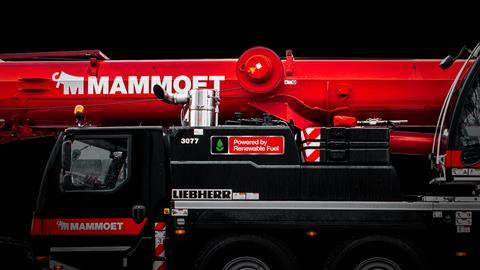Transport engineering and heavy lift specialist Mammoet will implement hydrogenated vegetable oil (HVO) across the Netherlands, UK and Canada from Q2 2025.

The shift comes following an uptick in demand for low-carbon solutions from customers, as well as being part of Mammoet’s own carbon reduction strategy.
Able to reduce up to 90 percent of greenhouse gas (GHG) emissions over its lifecycle when compared to diesel, HVO is a diesel replacement fuel made from vegetable oils and animal fats. Mammoet intends to use HVO100 – which is made from renewable raw materials only – as much as possible. It can be mixed with existing fuel stocks and is compatible with most diesel engines, so can be used straightaway.
HVO’s adoption has been facilitated by management schemes within the affected local organisations. The replacement fuel will be delivered to Mammoet fuel stations in the Netherlands, its UK bases in Hixon and Teesside, along with its Canadian branches.
“This is a significant step we are taking to reduce our carbon footprint,” said Pascal Eeken, improvement and innovation manager at Mammoet Europe. “By being the first large heavy lifting and transport company to commit to this new fuel at scale, we will drive down our emissions and showcase that we are also the market leader on this front.”
In November 2024, Liebherr’s Nenzing factory began fitting all its new machines with HVO fuel during assembly.
















